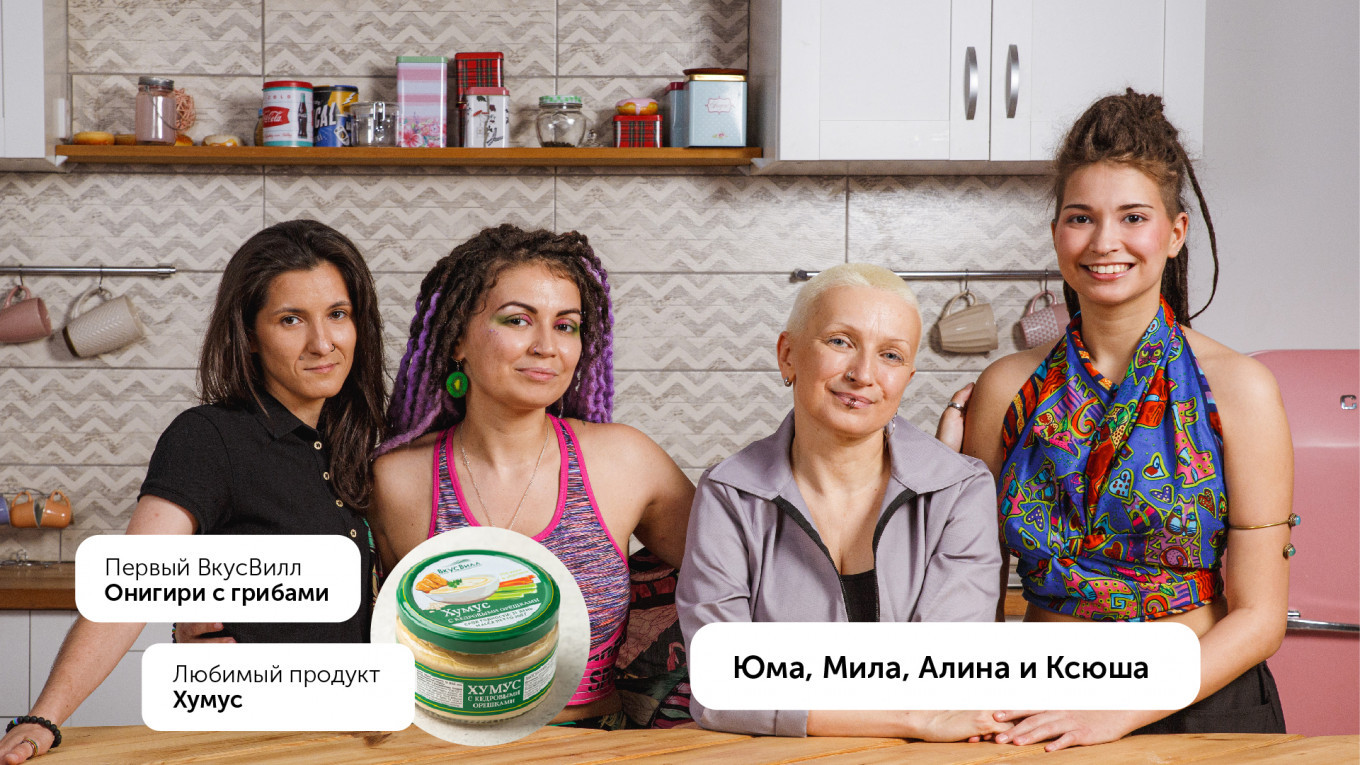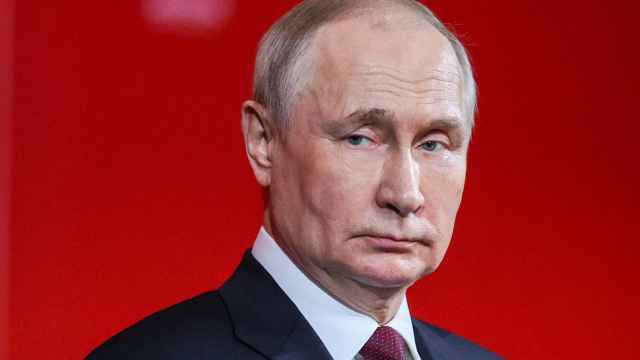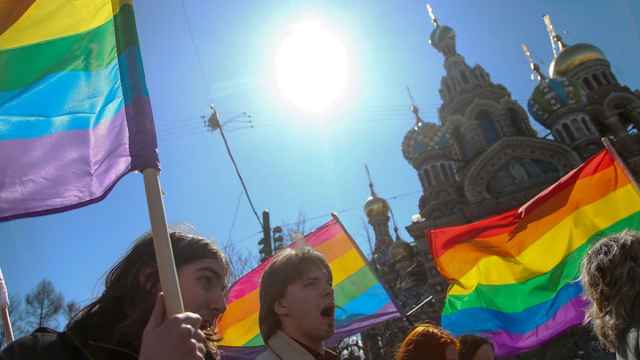In medieval Europe, the universal language was Latin; in the East, Chinese hieroglyphs. Today, millennials the world over — this author among them — have their own universal language: references to “Harry Potter”.
The first Harry Potter book introduced the magical Mirror of Erised, which showed a different reflection to each person who stood before it — what that person wanted most. For example, the saga’s hero, an orphan, saw his parents reflected in the mirror.
The Mirror of Erised may be the best metaphor for public opinion in modern Russia under Putin. What we see in it exists and at the same time doesn’t. That is, each person who looks into the mirror of public opinion finds what he always expected to find. And no two people ever see the same thing.
Take the most recent high-profile example. The large chain of fashionable supermarkets Vkusvill has operated in Russia (mainly in large cities) for more than ten years. Oriented towards the middle class and progressive youth, they sell locally-sourced produce with an emphasis on the health and nutritional value of their products.
Towards the end of June, the chain posted on its website and social media materials with the theme ‘family happiness’, with photos and stories of various families. Included was a story about two young women hoping to marry.
It was really nothing special. For many years, LGBT activists the world over have celebrated June as Pride Month, and every year more companies and brands show their support. There has even emerged such a term as ‘rainbow-washing’, for when businesses use rainbow flags as a marketing ploy with no real meaning.
But for today’s Russia, VkusVill’s act (which, I repeat, was an article on a corporate site) struck like a lightning bolt on a hot, dry summer day. In a country where homophobia has taken on an almost official character, where the last six months have seen the remains of street politics and public discussion run over by a steamroller, it prompted a real storm of emotion, both positive and negative.
The progressive part of the audience (younger, better educated, living in big cities) praised the supermarket chain’s “heroic” act. Vkusvill was “beloved”, “the very best” grocery store around. Shoppers pledged their eternal loyalty. The conservative part of the audience, predictably, responded with condemnation. Brand representatives on social media handled the response well.
Then something went wrong.
On July 4, the article and photographs were unexpectedly deleted. Something strange appeared in their place: a statement signed by VkusVill’s founder and eleven top managers. Here’s the relevant quote: “This page previously contained an article which many of our customers, employees, partners, and suppliers found offensive. We regret that this happened and consider the publication our mistake, which resulted from the unprofessionalism of individual employees.”
They added that the purpose of their company was to provide shoppers with fresh, tasty food, “not to publish articles expressing any sort of political or social views.” Retail stores noted their desire “not to become sources of hate and discord,” and offered their “sincere apologies” for what had occurred.
In literal minutes, the situation was completely reversed. Those who only yesterday had sworn the brand their undying love and registered for its loyalty card now demonstratively tore up those cards on camera and slammed the chain on social media, threatening a boycott.
Whether there will be a boycott, and if such a boycott would be successful, is hard to say. No previous attempt by the progressive part of Russian society has ever succeeded.
What I find interesting here is something else — the very different understandings of public opinion that arose among each of the participants in this story.
The full range of possible interpretations was on display: from those convinced that the overwhelming majority of Russians were “caveman homophobes”, to those who thought all the initial negative comments were written by bots and the decision to delete the article was taken only after a certain phone call from “up top”.
Few will admit it openly, but the fact is that in Russia, every observer, blogger, journalist — any person on social media — operates on his own idea of what public opinion is. That is, we all look into our own Mirrors of Erised.
Some might take comfort in thinking themselves part of an enlightened minority, surrounded on all sides by spear-shaking savages. Others might find it pleasant to believe that everyone around them has long arrived at the same, correct understanding.
The borders of reality are blurred because our understandings of societal norms are themselves constructed and subject to change. Today’s Russia lacks many of the tools characteristic of many western countries to return citizens to a shared reality.
For a start, Russia has no real elections. The parliamentary elections set to take place in two months do not qualify, not with many candidates simply not permitted to register and others struck down by criminal investigations. Nor is it a given that the votes permitted will be accurately counted.
If there were elections, we could learn how many people would support a homophobic party and how many a pro-LGBT one. So it is in Poland and Hungary, for example. But Russia doesn’t have that.
Nor does Russia have truly independent journalism serving the whole of society. Yes, there are still some news outlets hanging on by a thread, waiting nervously for their turn to be pronounced ‘foreign agents’. But that is not enough to hold up a mirror to society or establish a common understanding of life in that society.
Finally, Russia lacks normal social sciences. There are certainly good social scientists, but no social sciences. This stems from the fact that in a half-authoritarian society built in large part on hypocrisy and fake information, people are loath to express their true beliefs to interviewers. Or indeed to anyone at all, not least themselves.
Our situation is unique and potentially very dangerous. Everyone in Russia, from ordinary citizens to political bigwigs, has his own magical Mirror of Erised. Looking into it, each uses his own intuition to draw conclusions about the opinions of others. We all live with the results.
A Message from The Moscow Times:
Dear readers,
We are facing unprecedented challenges. Russia's Prosecutor General's Office has designated The Moscow Times as an "undesirable" organization, criminalizing our work and putting our staff at risk of prosecution. This follows our earlier unjust labeling as a "foreign agent."
These actions are direct attempts to silence independent journalism in Russia. The authorities claim our work "discredits the decisions of the Russian leadership." We see things differently: we strive to provide accurate, unbiased reporting on Russia.
We, the journalists of The Moscow Times, refuse to be silenced. But to continue our work, we need your help.
Your support, no matter how small, makes a world of difference. If you can, please support us monthly starting from just $2. It's quick to set up, and every contribution makes a significant impact.
By supporting The Moscow Times, you're defending open, independent journalism in the face of repression. Thank you for standing with us.
Remind me later.








